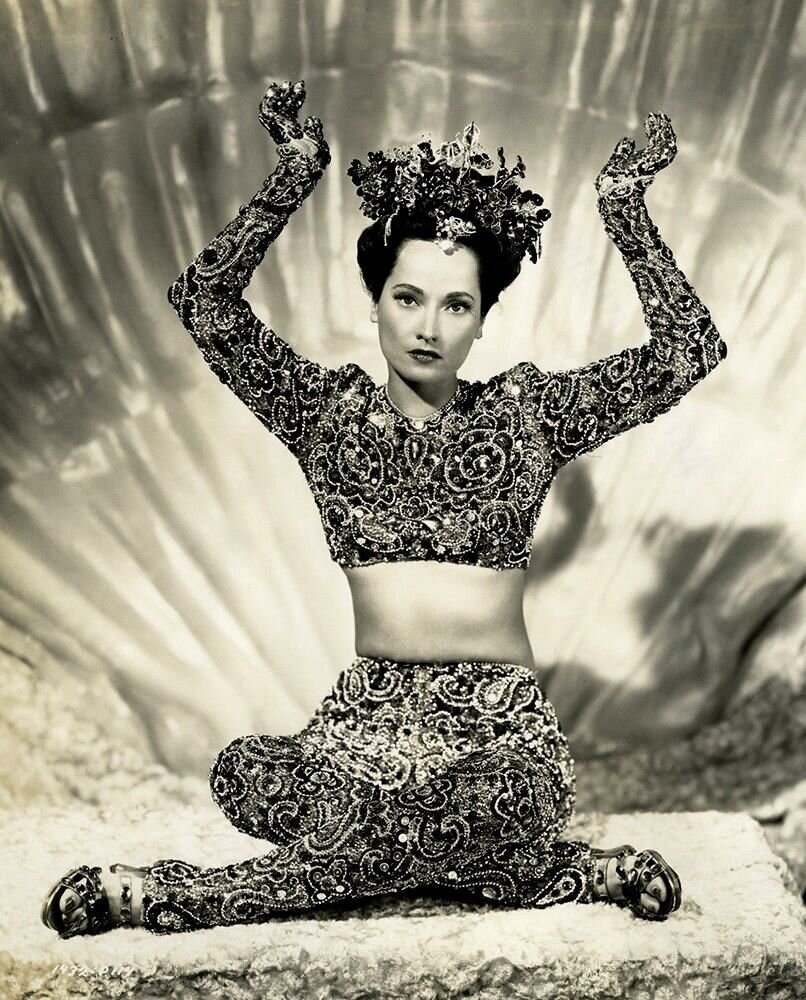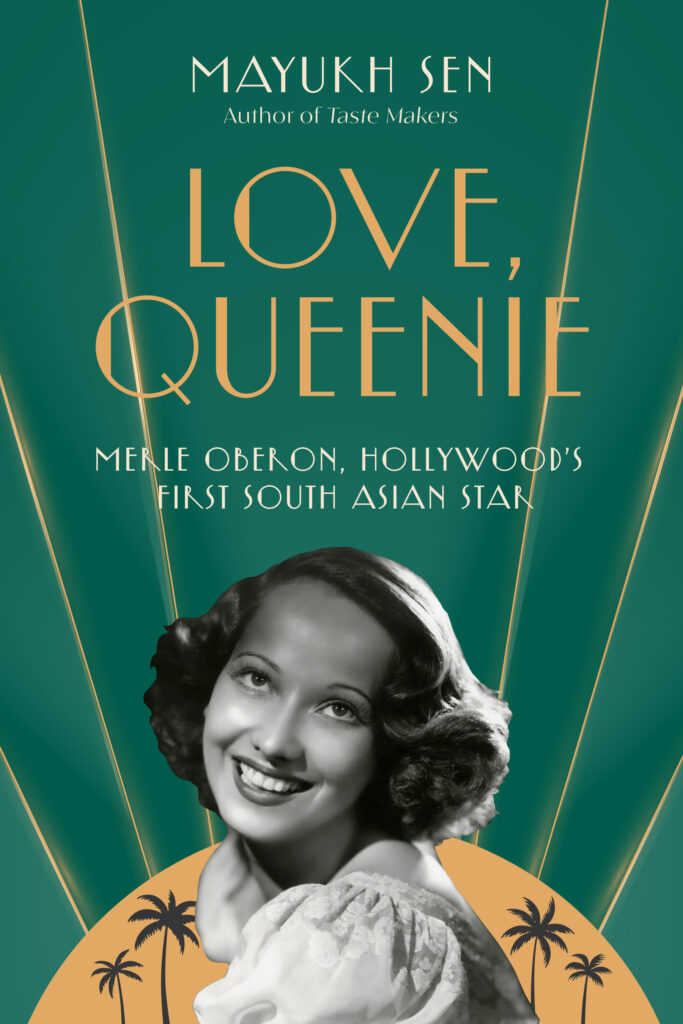“Like any good gay boy, my mom is my best friend.” – Mayukh Sen

Acclaimed author Mayukh Sen’s Love, Queenie: Merle Oberon, Hollywood’s First South Asian Star is a meticulous biography of the first Asian woman nominated for an Academy Award. Infectiously charming, Sen, a James Beard Award winner, speaks with JANET MERCEL about bringing Oberon’s mostly unknown story to light.
This isn’t your first time at the rodeo. In 2021, Taste Makers: Seven Immigrant Women Who Revolutionized Food in America, your debut book, came out and won a slew of accolades.
I had a recognizable set of credentials in the food world, had already won the James Beard award, and that was the avenue I could take to break through. For Queenie, I had to slough off the “food writer” and rewire my brain. I could have done a second book in the genre, but I didn’t want to look back on this moment and think that I took the easy way out—it would have killed me! I owed it to myself to pursue this passion project; I grew up in a cinephile household. I’ve always written about film.
There’s an obvious throughline, though. Both books center on complicated, powerful women—or rather, women you saw as powerful in their own way—making their mark against cultural odds.
That absolutely extends to Merle. I wanted to find the emotional touchpoints in these women whose work didn’t stand the test of time for reasons beyond them. I first encountered her in high school in New Jersey around 2009, as Cathy in Wuthering Heights [1939]. I always devoured Entertainment Weekly. I studied the histories of Oscar-nominated actresses—but this was not a name I’d grown up hearing, like Barbara Stanwyck, Joan Crawford, or Greta Garbo.

And yet, she was the first Asian Best Actress nominee—for 1936’s The Dark Angel—preceding Michelle Yeoh by 87 years, all while “passing” for white in 1930s Hollywood.
She was the first performer of color to be nominated for an Oscar, period. Growing up in a Bengali household, she was my diva of choice. I had so much sympathy for her—I mean, I cried when Keisha Castle-Hughes lost the Best Actress Oscar to Charlize Theron. It was hard for my young mind to process living with such a painful secret. When I got older and was avidly reading Oscar blogs, I was surprised that everyone seemed to trash her, dismissing her as not much of an actress.
You wrote that one said she “had a disquieting resemblance to an egg.” I think people today struggle with her refusal to openly embrace her identity. But, of course, it’s not that simple.
I came of age in a Tumblr world, where there’s no understanding of human frailty or nuance. They couldn’t make her into a Barbie doll like Anna May Wong, but she was, in reality, more relatable. Merle had her flaws, she was human. She was not a straightforward role model, but we have those stories already! It’s so boring just to make a hero.
: “The Hays Code forbade miscegenation between white performers and performers of color. And it went far beyond the casting room—the Immigration Act of 1917 prevented U.S. citizenship for Southeast Asians at all. I wanted to give her that context. Her story is a true slice of American history that’s largely under told.” – Mayukh Sen
You write about Merle’s skin bleaching; how careful she had to be with makeup and hair to downplay her “almond eyes” and bronze skin. But it was more than the standard pressure on a film star to fit in. She had escaped extreme poverty in [then] Calcutta, plus there were real-world consequences if she were found out.
She was so young, and she was given this golden ticket of a new biography. It was barely her decision to “pass.” The Hays Code forbade miscegenation between white performers and performers of color. And it went far beyond the casting room—the Immigration Act of 1917 prevented U.S. citizenship for Southeast Asians at all. I wanted to give her that context. Her story is a true slice of American history that’s largely under told. She had such determination, especially if you tried to keep her down. A real “I’ll show you” attitude. There’s so much we can learn from her.
What are the women like in your life? There must be someone who inspires you to tell these stories.
Well, like any good gay boy, my mom is my best friend. She had an arranged marriage to my late father and grew up in poverty in a village. I’ve seen her completely remake herself in this new, unfamiliar country. I would think of her, decades ago, learning how to ride the subway, wearing saris in public, her accent, and the hostility she may have faced. Her imprint on this book is quite deep.
What writers or books changed your life?
In 7th or 8th grade, I picked up Sophie’s Choice without knowing what it was. I was struck by the immense scale of the story; how granular William Styron was in the rendering of each character. I was still dabbling in fiction and thought how amazing it would be to write an object of that majesty. Arundhati Roy’s The God of Small Things moves in so many directions I did not anticipate, playing with and subverting language. There’s this youthful ability to play on the page.
And most recently?
Cynthia Carr’s Candy Darling: Dreamer, Icon, Superstar bio from last year. Do you ever read a book that is just so deft…the way she worked with archives and public papers. As a biographer, I wish I possessed this. It’s so artful while always keeping the humanity at the center of the narrative.

Buy “Love, Queenie: Merle Oberon, Hollywood’s First South Asian Star HERE

